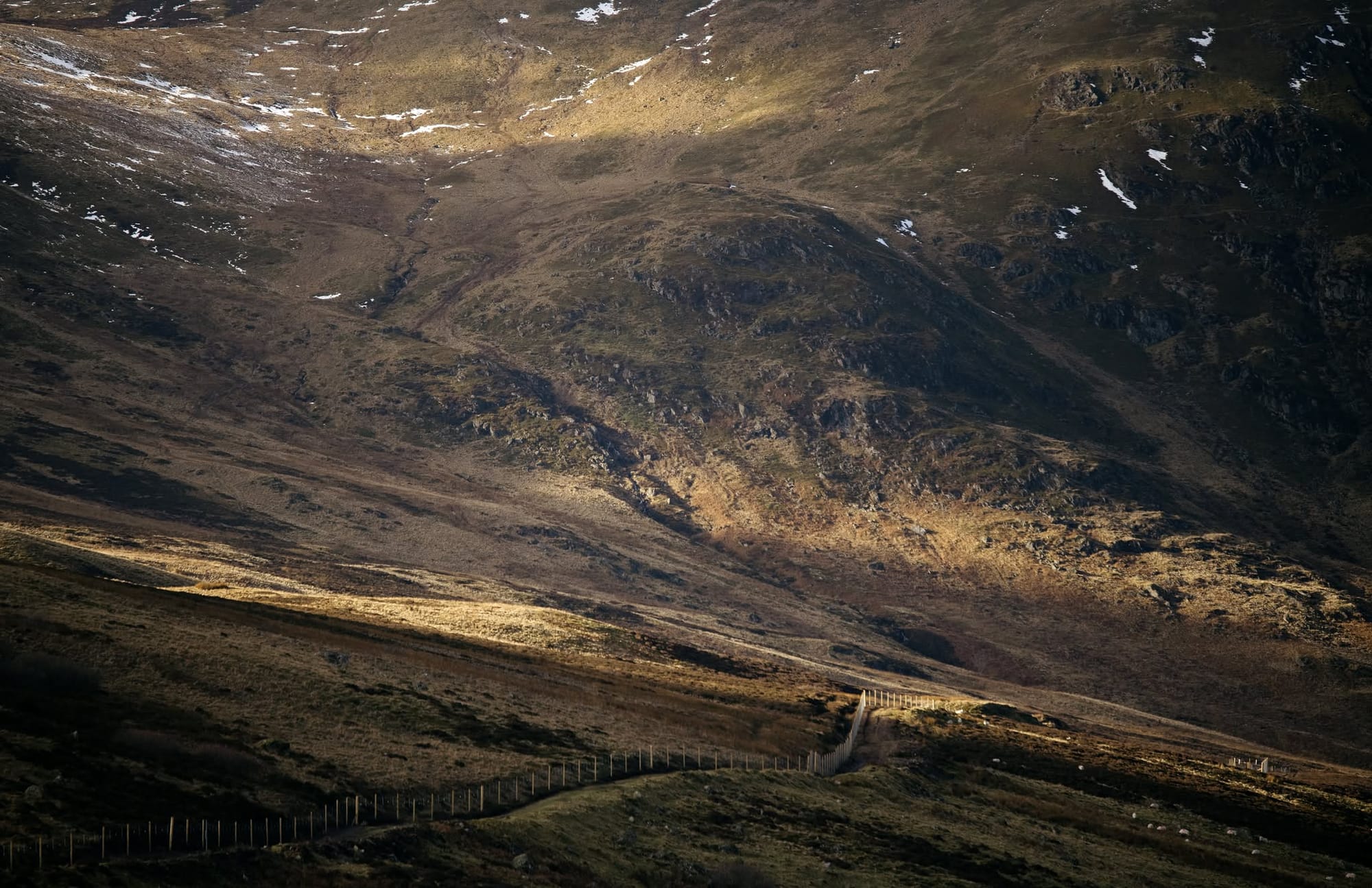A New Way To Engage

Halò! Fàilte!*
My name is Kristie. I’m a writer, photographer, and drystone waller from Scotland. My first book, Drystone – A Life Rebuilt (a memoir that isn’t really about drystone at all), comes out on August 7, 2025.
I’m intentional about where I put my work. The current cultural and political climate makes that more important than ever. I want this newsletter to be a quiet, carefully curated space, somewhere to share writing, photography, stone, book updates, and whatever else seems worth sending.
I started on Substack a few days ago, then learned they allow neo-Nazis to post. Plenty of platforms excuse fascism "free speech" is just one of the ways they do it. I left. I’m staunchly anti-fascist, and I don’t want my work on a platform that profits from and/or supports those ideologies.
Ghost is independent. No ads, no data mining, no engagement traps. It’s a not-for-profit foundation with no shareholders, building open-source software. Ethics over £££. (More on that here: ghost.org/about)
Leaving behind platforms built to keep people scrolling feels like a relief. I don’t want to chase clicks or feed algorithms that push any old garbage to the top. I just want to make things and share them here, at my own pace.
*(This means "Hello! Welcome!" in Scottish Gaelic, a language I’ve been learning for 18 months now.)
About My Book
My book, Drystone – A Life Rebuilt, is a memoir, and despite the title (publisher’s choice!), it’s not really about drystone walling. Here’s how I see it.
A Memoir About Rebuilding
Drystone - A Life Rebuilt is a book about the past and the hard work of living on your own terms.
I spent years running. From places, people, and parts of myself. But chaos always followed.
Growing up in the shadow of my family’s brutal experiences of racism, I faced my own, dodging racial slurs and pennies thrown by school bullies. I felt connected to the land and the stone beneath my feet, but not the people around me. By fifteen, I was drinking whatever was handed to me, drawn to the easy escape of alcohol. I was already drifting from the life I had imagined for myself.
A boyfriend? Cruel and controlling.
University? Tried and failed. Three times.
Then marriage and motherhood by twenty-one.
Through it all, I kept going—not gracefully, but going all the same.
In my thirties, I moved to rural Scotland, hoping to find peace. Instead, in the space and silence, I was forced to confront everything I had tried to leave behind: racism, trauma, undiagnosed ADHD, addiction, and the stark realities of raising two daughters amidst it all.
Healing In Nature
Set against the landscapes of Scotland, from the vast Flow Country in Caithness to the hills and fields of Perthshire, this memoir weaves together personal reflection, nature writing, and social commentary, framed by the steady, grounding work of drystone walling.
Drystone: A Life Rebuilt explores the hard work of rebuilding and nature’s quiet, grounding power, not as a magical cure, but as a place to find clarity.
Not a Neat Redemption Story
Healing isn’t a finish line. It’s the slow, deliberate work of rebuilding yourself in a world that often refuses to change. Like drystone walling itself, it’s about doing what you can with what you have: a process of persistence, not perfection.
This book is both deeply personal and profoundly universal. A story about what is passed to us and what we choose for ourselves. And it's a book for readers looking for something more than nature’s gentle healing.
Through unflinching honesty and unexpected humour, Drystone - A Life Rebuilt acknowledges that some wounds never fully heal, racism persists, mental health struggles don’t vanish with a diagnosis, relationships remain imperfect, and raising children while healing yourself is complicated. For me, recovery isn’t a before-and-after story, it’s an ongoing process, slow and deeply human.
Drystone offers a clear and unsentimental take on trauma and recovery. One that doesn’t pretend healing is neat, or that the world makes it easy.
Beyond Recovery—Race, Class, Land, and Family
But Drystone isn’t just a story about recovery. It’s about race and belonging, class, the land. Nature isn’t always a place of escape, and the land isn’t just for fleeting feelings of wonder. For many, it’s for life, for work.
This is also a book about family. The kind anyone can recognise—where, even with the best intentions, love and harm are inseparable, closeness and distance exist together, all at once, and the past often looms large.
For those who don’t see themselves in the linear, wrapped-up-in-a-bow type of recovery stories, Drystone is something different. It tells the messy, unfiltered truth. It’s raw. It’s angry. It’s tender. It’s lucid. It’s about rebuilding, however you can, with whatever you have, one step at a time.
Drystone – A Life Rebuilt is set to be released on August 7, 2025.
Pre-orders here.
On Book Deals And Publishing
I was lucky.
Two years ago, I got a Twitter DM: Have you ever thought about writing a book?
Yes. Sure, I had. But never seriously, just the occasional daydream.
A commissioning editor had come across my writing and reached out. A few months later, with a book proposal and a first chapter in hand, I had signed a contract. It all happened quickly. I was flattered. I was thrilled. There’s still a lot of prestige attached to a book deal.
And publishers know that.
At the start, it’s the business equivalent of love bombing. They say all the right things: collaboration, support, an open ear. But once the contract is signed and the honeymoon period is over, reality sets in. And as reality often is, it’s less appealing.
This isn’t to say you shouldn’t strive for a book deal. It’s still a great way to get your work out there. But there are things I wish I had known:
1. Get an Agent—Before You Sign Anything
I didn’t realise you need to secure an agent before you sign a deal. Once you’ve already signed, most agents won’t take you on, and you’ll be navigating contracts, decisions, and publisher relationships alone. Yes, they take 15% of your statistically small payout. But I’d still get one first.
2. Know That a Book Deal Isn’t the Finish Line
A contract doesn’t mean you suddenly have power. Publishing still operates on the assumption that writers should be grateful just to be here, that a book deal is the reward, and after that, you should take what you’re given. In reality, that’s just the beginning. The real work, and the real fight, happens after the deal is signed.
3. Not Everything You’re Promised Will Happen
Publishers will talk about collaboration, about how much input you’ll have, how they want this to be a conversation. Some authors get a real partnership. Others get… less.
It's very hard as an author (without an agent) to tip the scales in your favor, even when you're fine being a huge pain in the ass.
4. If You Don’t Advocate for Yourself, No One Else Will
I’m a good advocate for myself (and others). I don’t mind confrontation.
But not everyone has the skills, energy, or time to push back against a system that feels really broken. I’m not sure I do either. I’m really tired.
My book is deeply personal. I write openly, often painfully, about abuse, family dynamics, mental health. There are things I cannot compromise on.
Maybe that makes me difficult. Or maybe that’s just what protecting yourself and your work looks like.
5. Would I Do It Again?
I don’t regret writing this book. I love my book. It’s not just a great book, I learned so much about myself through the experience of writing it.
But I do wish I had understood that what comes after you've finished writing is really hard, the part when your work is in other people’s hands. Hands that are overworked, underpaid and not as invested as you are.
Thanks for reading. I appreciate you being here.
If you like my words and images, consider sharing on social media or with friends who might enjoy it too. You can subscribe to my newsletter at the 'signup' link below. You can also read more about my book here and you can buy my book here.
